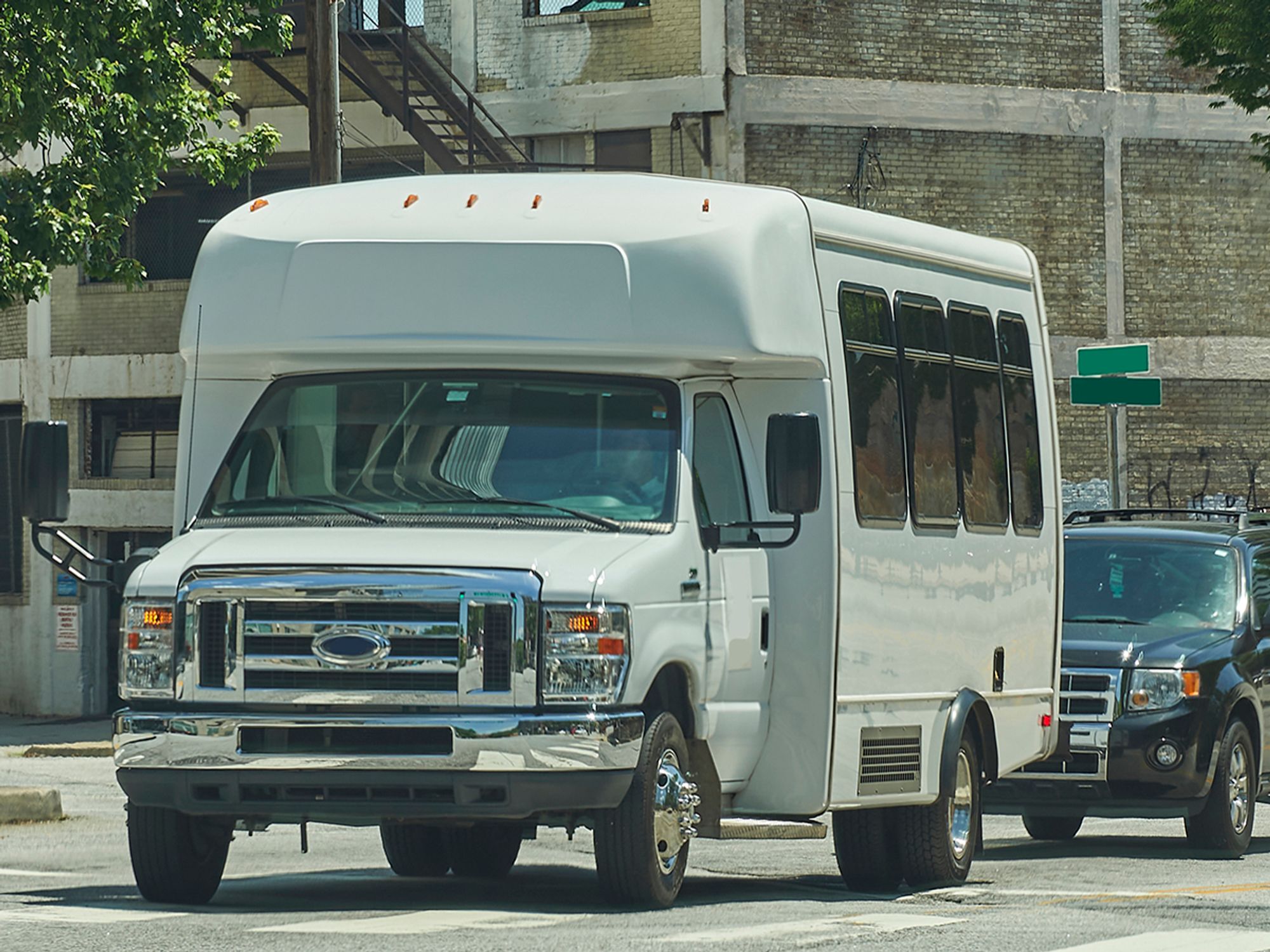Private motor carriers of passengers (PMCP): Business and non-business

- Private motor carriers of passengers (PMCPs) are classified as “business” or “non-business.”
- “Business PMCPs” include companies that transport employees, private school students to athletic and other events, and professional musicians using buses for concert tours.
- “Non-business PMCPs” include churches, scout groups, civic or scientific organizations, and other charitable organizations that may purchase or lease buses for private transportation of members.
There are two types of private motor carriers of passengers (PMCPs) - “business” and “non-business.” The “business PMCP” provides private transportation of passengers for a commercial purpose. The “non-business PMCP” provides private transportation of passengers not for a non-commercial purpose.
Business PMCPs
Examples of “business PMCPs” include companies that use buses to transport their own employees, private school transportation (paid for out of the school’s budget) of students to athletic or other events, and professional musicians who use buses for concert tours. Business PMCPs do not include commercial businesses that provide transportation to the public. Business PMCPs are subject to the same regulations and exceptions as for-hire carriers, but:
- The insurance requirements (Part 387) do not apply; and
- Under 391.69, certain qualification requirements do not apply to certain drivers who have been employed by the same company since 1994.
Commuter vanpool exemption - Commuter vanpool operations may or may not be subject to FMCSA safety regulations. According to the Federal Motor Carrier Safety Administration, vanpools are exempt from its safety regulations when all the following conditions are met:
- The motor vehicle is operated by individuals traveling to and from work transporting other individuals as part of a daily commute in an interstate, single daily round trip;
- The motor vehicle is designed and used to carry no more than 15 individuals (including the driver);
- The gross vehicle weight and gross vehicle weight rating are both less than 10,001 pounds; and
- The money received by the vanpool operator for transportation does not have to be reported to the Internal Revenue Service.
Non-business PMCPs
Examples of “non-business PMCPs” include churches, scout groups, civic or scientific organizations, and other charitable organizations that may purchase or lease buses for private transportation. This does not include individuals providing personal conveyance of passengers for recreational purposes; a non-business PMCP must be engaged in some type of group activity.
Non-business PMCPs are subject to the same regulations and exceptions as for-hire carriers but are exempt from many paperwork requirements. Specifically, these operations are exempt from:
- Insurance requirements (Part 387);
- Driver minimum-age restrictions;
- The need for drivers to provide a list of violations from the past 12 months;
- Road tests;
- Employment applications, driving-record checks, previous-employer inquiries, and annual reviews (Part 391, Subpart C);
- The requirement for drivers to be medically examined and carry a medical exam certificate (but drivers are not exempt from the minimum physical qualifications in 391.41(b));
- Driver qualification and investigation files;
- Records of duty status (logs);
- Maintenance records as required by 396.3(b); and
- Daily post-trip vehicle inspection reports.
